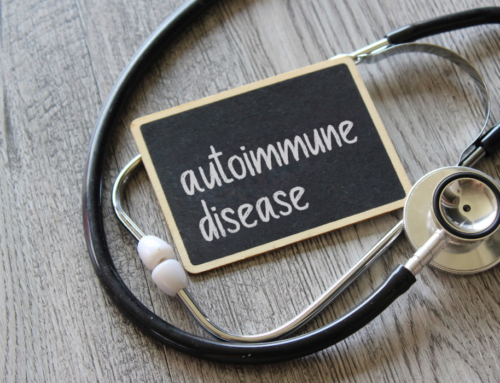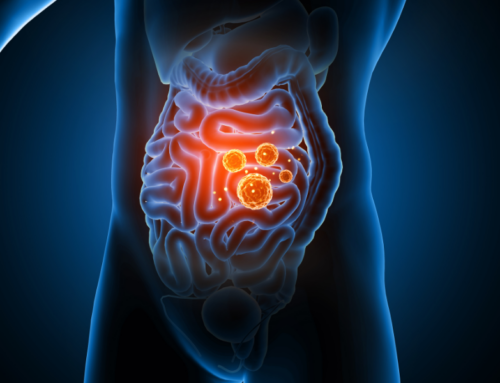
Hormone Replacement Therapy: Risks, Benefits, Guidelines and Considerations
By Kiran Dodeja Smith and medically reviewed by Anya Wallace, PA-C
Hormone replacement therapy (HRT) is a popular topic these days, and there is a lot of misinformation that is floating around. This article will delve into the intricacies of HRT, shedding light on its risks, benefits, and considerations that anyone contemplating this therapy should be aware of. This information utilizes guidelines from the American College of Gynecology as well as the North American Menopause Society.
What is hormone replacement therapy and why is it important?
Simply put, hormone replacement therapy (HRT) is a medical treatment to treat symptoms of menopause. This treatment replaces the female hormones that lower as you head towards menopausal years.
HRT offers a solution to a multitude of individuals navigating hormonal imbalances and age-related changes. We mentioned that this topic has gained considerable prominence, and with good reason.
As our understanding of hormones and their role in maintaining physical and emotional equilibrium has deepened, so has the recognition of HRT as a crucial medical intervention. From alleviating the distressing symptoms of menopause to addressing hormonal imbalances that can affect both men and women, HRT has the potential to significantly enhance the quality of life.
What types of hormones are used in HRT?
In female hormone replacement therapy, there are different options available for use. It is important to understand that not all HRT is the same. Guidelines still talk of synthetic estrogens and progesterone, but there is also a bioidentical option. Bioidentical hormones are plant-derived chemical compounds whose structure are identical to those made by the body. They are gaining popularity in recent years, while in the past, commonly used hormones were made from the urine of pregnant horses or from synthetic sources.
Types of hormones that we utilize in our functional medicine clinic:
- Biest – a combination of Estradiol and Estriol
- Micronized progesterone
- Testosterone
Note that these are all individualized to meet our client’s needs and are also adjusted over time as needed.
What are compounded hormones and why are they not FDA approved?
Compounded hormones are individualized hormones that are made by a compounding pharmacy. They contain bio-identical hormones that are specifically dosed for an individual based on their needs, to include specific dosage as well as mode of delivery.
In order to be FDA approved, you have to have a standardized product, which essentially negates the purpose of a compounded product, thus, they are not FDA approved. However, The FDA has implemented a policy of enforcement discretion, which allows for state pharmacy boards to regulate compounding pharmacies.
When considering compounded hormones, it is important that your provider utilize an accredited compounding pharmacy.
Compounded hormones can be especially helpful for those who have a sensitivity to an ingredient in a traditional hormone, as in the case with Prometrium, which includes peanut oil. If one has an allergy to peanuts, obviously the traditional option would not be available to them.

What are the risks of hormone replacement therapy?
First and foremost, it should be noted that as in all areas of medicine, it’s a matter of risk vs. benefit. Perhaps another way to look at the question is, what are the risks of not doing hormone replacement therapy? This includes loss of bone density and increased risk of cardiovascular disease, specifically plaque changes in the artery walls.
Additionally, related risks come into play when determining whether you are using synthetic or bioidentical hormones. The latter have a lower risk for cardiovascular disease, breast cancer as well as other cancers.
When considering HRT, it’s important to have good communication with your provider so that they can create an individualized treatment plan. Close monitoring is also important. Oftentimes there are tweaks that need to be made along the way, so again, that close communication with your medical provider should come into play. Within this discussion, your family history along with your personal history should be included.
According to the North American Menopause Society, “Hormone therapy remains the most effective treatment for vasomotor symptoms (VMS) and the genitourinary syndrome of menopause and has been shown to prevent bone loss and fracture. The risks of hormone therapy differ depending on type, dose, duration of use, route of administration, timing.”
When is the best time to start hormone replacement therapy?
The best time to start HRT is within 10 years of menopause onset. Women who begin hormone therapy outside of that time, or at age 60 or older are at a greater risk for cardiovascular disease. This said, if you are outside of this window, discuss the risks and benefits with your provider for your particular case.
Are there any alternatives to hormone replacement therapy?
Eating healthfully, whether on HRT or not, is important for your hormone health. Right alongside this is exercise, and it should be noted that this should not just include cardio. Many women rely on cardio for their movement, but as we age, we lose muscle and it becomes that much more important to focus on strength training.
Not to be overlooked is sleep, minimizing alcohol and also not forgetting the importance of gut health. Your gut microbiome is responsible for moving hormones out of your body and helping you detoxify. Additionally, your gut is where you absorb nutrients to produce hormones. If you aren’t breaking down and absorbing properly, the hormonal process within will be thrown out of whack. While these are not alternatives to HRT, they without a doubt need to be considered when looking at hormonal health.
In conclusion
Hormone replacement therapy, in most cases, is a safe and effective way to manage menopausal symptoms, including hot flashes, mood swings, brain fog and more.
Having an individualized plan with your medical provider including knowledge of your personal and family history is imperative. Understanding the difference between bioidentical and traditional hormones is important as well.
Ask questions of your provider. Provide complete information, and know that adjustments may need to be made along the way. Hormone replacement therapy can be a safe and effective way to feel your best as you transition into menopausal years.
Have questions about your hormone levels or regarding this article? Please feel free to contact us.
References
[1] https://onlinelibrary.wiley.com/doi/epdf/10.1111/j.1365-2710.1991.tb00310.x [2] https://www.ahajournals.org/doi/10.1161/atvbaha.108.182279This is for general informational purposes only and does not constitute any practice of medicine or professional health care services of any type. The use of information on this blog is at the user’s own risk. The content of this blog is not intended to be a substitute for professional medical advice, for diagnosis, or for treatment. Please seek the care of your health care professionals for any questions or concerns.








